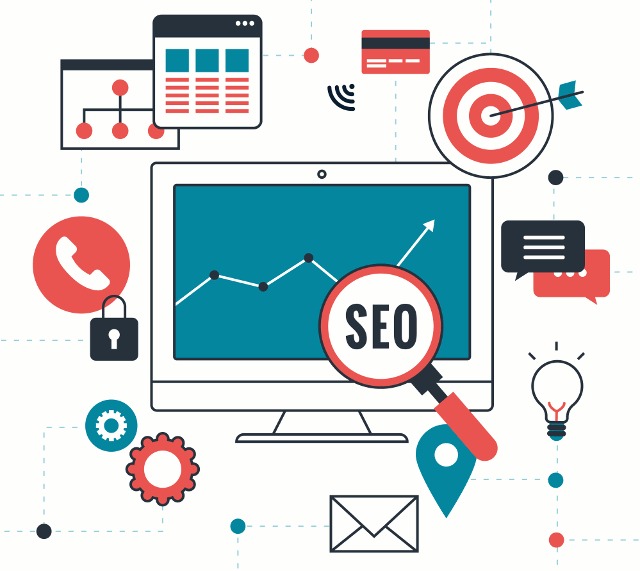Local SEO for Small Businesses
As a smart consumer, when you want to buy tickets to the latest Hollywood flick or purchase a book a friend recommended, how do you do it?
You pull out your phone and do some good old-fashioned research using your favorite search engine – Google.
Your customers are no different. When they need a product or service, they go online to find it. Users are more likely to search locally. Just the same way you wouldn’t purchase a movie ticket for a film that’s not even being screened at your cinema of choice; your customers are going to search for the products and services they need locally.
This means, if your brand’s name isn’t among the first few to pop up on Google, you are missing out on some serious business opportunities. If that wasn’t enough for you, nearly 50% of consumers who carry out a local search visit the store within a day.
That’s a lot of foot traffic that could have come your way, but instead is going to Bob’s place across the street.
Luckily, there’s a simple fix, and it’s called “local SEO“.
Local SEO: Explained
Local SEO is a lot similar to organic SEO, but the former focuses on a geographical component as well. The main aim of using local SEO is to rank higher in the search engine results for local searches. In other words, the top local pack-ranking factor for local SEO is proximity to the customer (or searcher).
Ahh, what’s a pack? You ask.
According to Google, a “3-pack" is not a new way of buying beer (sadly). It’s a collection of the top three results that Google generates for local searches. While this once used to be a 7-pack, it was shortened down to make it easier for mobile searches (and, there’s a lot of those). So if you have a business, then that’s the real estate you’d want it to occupy on the SERPs.
The most important factor in local SEO is more of a trinity of SEO, as in the NAP, or Name, Address, and Phone number, with some even including NAP=W for website (which makes sense!). Focusing on the NAP-factor or (NAP+W) is important because Google uses it as a measuring stick to determine if your business exists or not.
Why Your Business Needs Local SEO?
“But, I don’t own a brick-and-mortar store, so why should I care about local SEO?" Yes, you do if your business serves a specific geographic area or even if your business serves multiple locations. Focusing on a solid local SEO strategy can get your business on the map.
So, this is how it works. You need Google (to grow your business) and Google needs NAP to find yours. Now that you get the picture, it’s time to move on.
Mobile Search Is on the Rise
More than half of all online searches are performed on mobile, and this number is likely to increase. Since many people have the habit of using their mobile phones to search for information on-the-fly, Google decided to get one step ahead by focusing on search intent and local search. That was the whole point of Google Hawk sweeping in a few years ago and changing the way local filters work.
Nowadays, even our smartwatches are location-enabled, so by optimizing your business website for your location, you are enabling potential customers to find you more easily – by rising higher up on the SERPs. See, that wasn’t so hard to understand now, was it?
Speaking of mobile search, today’s businesses are no longer competing with traditional searches, but also with paid ads, media elements, and featured snippets, and what about “zero-click searches.”Today, zero-click searches amount for just 34.4% on desktop searches, while its 62% on mobile devices.
For those who were wondering, zero-click searches are those where the answer is displayed in a box that appears at the very top of Google’s search engine result’s page. So, the search intent is satisfied without the searcher having to click on any link at all. While this was traditionally used for finding time zones, word definitions or currency conversions, Google is slowly expanding their use. One thing’s for certain, the future of Google’s first search result’s page is going to be – crowded.
Keeping these different factors in mind, businesses need to improve their local and on-SERP SEO strategy if they want to be part of the status quo on Google’s first page.
Authentication
Authenticity is a dying breed in the digital landscape. With the number of fly-by-night businesses popping up and shady characters looking to weasel you out of your hard-earned money, obviously, today’s consumer is more on edge when it comes to purchasing a product or getting a service online. Keeping that in mind, Local SEO has fast become one of the more trusted forms of verifying if a business really exists. That’s the reason why, whether your business is on Facebook or Yelp or any of the host of other online platforms, they will always ask businesses to confirm their location.
Google: The New Homepage for Your Business
Tweet this, the U.S. is estimated to spend up to $80 billion on Search Engine Optimization by 2020. So, whether you’re looking to rank higher on Google, Bing, Yahoo, DuckDuckGo, or any other search engine for that matter, it’s time to use Local SEO. Afraid where to start? Don’t be. Media Glance has a team of certified professionals, such as social media marketers, SEO consultants, web designers, web developers, content marketers, PPC managers, etc., all under one roof who can help optimize your website for local SEO and much more.





